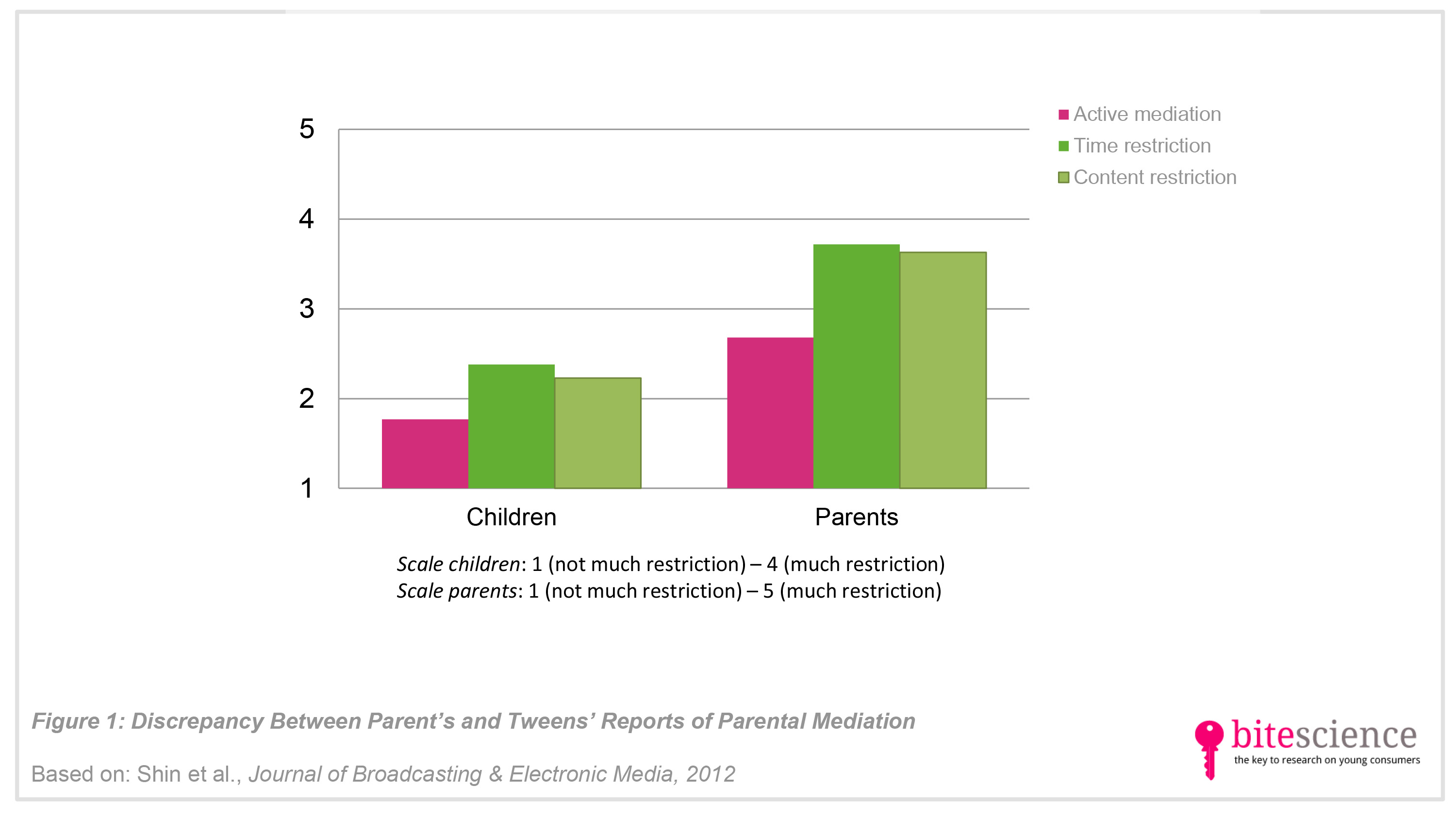
Tweens Indifferent to Their Parents’ Internet Regulations
Today’s children are savvy internet users and most parents have a hard time keeping up with their kids’ online skills. This powerless feeling urges parents to set up internet regulations to protect their children for online ‘dangers’, such as sharing personal information. A Korean study in Journal of Broadcasting and Electronic Media, however, shows that such internet regulations not always protect children from online privacy risks.
Take aways
- Parental internet regulations seem to have no effect on tweens’ willingness to reveal personal information online.
- Tweens perceive their parents’ internet rules and regulations as less limiting than their parents do.
- Older tweens who are confident about their internet skills are more likely to reveal personal information online.
- As children grow older, they become more confident about their internet skills, without complete understanding of the online risks, such as private information disclosure.
- Intervention programs should therefore pay special attention to the critical time period wherein tweens develop this internet confidence (ages 9 -12).
Study information
The question?
What’s the influence of parental internet regulation on children’s revealing of personal information online?
Who?
381 9-to 12-year olds and their parents or caregivers (53% of the children were boys; 90% had a computer at home, and 98% of those computers had an internet connection)
Where?
South Korea
How?
At six different elementary schools in five South Korean cities, in-class surveys were conducted with the children. The questionnaire contained questions about children’s willingness to reveal personal information online, and the rules and regulations set by their parents to control their online behaviors. The parent questionnaire was taken home by the children and contained questions about internet rules and regulations as well. Two types of parental mediation were studied in terms of online regulations: (1) active mediation (i.e., explanations and discussions about the undesirable aspects of media contents and appropriate media consumption behaviors), and (2) restrictive mediation (i.e., rules to control children’s media usage, such as content restriction and time restriction).
Facts and findings
- Tweens perceived their parents’ online regulations (active and restrictive) as less limiting than their parents did, see Figure 1.
- Whether parents regulated their children’s online behaviors or not, no influence was found on children’s willingness to disclose information online (for example, revealing or giving of personal information, such as a name, home address, email address, telephone number etc. through their personal websites/social networking sites, or to online marketers for registration, membership or other reasons)
- This means that tweens were not that much affected by their parents’ regulations.
- However, children whose perception of their parents’ internet restriction activities differed from their parents’ reports, were more likely to disclose information online.
- According to the researchers, an explanation could be that those children failed to understand, accept, or abide by these rules, without understanding of the risks involved.
- Age and confidence about internet skills were important predictors for children’s online information disclosure as well:
- Older tweens were more likely to disclose private info online than younger tweens.
- Tweens who were confident about their internet skills, were more likely to disclose private info online, than the less secured ones.
